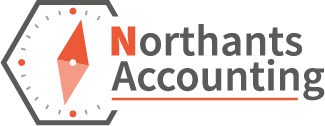How many times have you heard someone say “cash is king”? It’s a popular phrase for a very good reason. Healthy cash flow management is often the difference between success and failure for small businesses. After all, without sufficient cash flow you won’t be able to cover the cost of operations. Here are five golden rules of healthy cash flow management to help you manage your money wisely and avoid disaster.
#1 – Stay On Top of Accounting and Reporting
One of the most important aspects of healthy cash flow management is keeping track of your finances. This means staying on top of your accounting and reporting. Have a system in place that allows you to track income and expenses on a regular basis. This will help you identify any potential problems early on, so that you can take corrective action before it’s too late.
For example, if you notice a significant drop in revenue from your online store this quarter, it’s probably time to examine the reasons behind the decline and make any necessary changes as soon as possible. If not, you may find yourself struggling without enough cash flow going forward.
You can also use an accounting software like FreshBooks that’ll automate much of this process for you.
#2 – Create a Cash Reserve
One of the best ways to ensure healthy cash flow is to have a cash reserve. This will give you a cushion in case of unexpected expenses or dips in revenue. How much money should you set aside? That depends on your business, but a general rule of thumb is to have at least three months’ worth of expenses saved up – six is even better.
For example, if you have $60,000 in revenue per year and expenses of around $30,000/month then you should aim to set aside at least six months’ worth of income. That means having about $180,000 (or more) saved up until your cash flow is back on track.
#3 – Hire a Professional Accountant
If you’re not comfortable managing your own finances, it may be a good idea to hire a professional accountant. This is especially true if your business is growing and becoming more complex. A good accountant can help you stay on top of your accounts, make smart financial decisions, and save money in the long run.
Plus, they’ll know all the tax deductions you’re eligible for, which can help reduce your tax bill.
#4 – Separate Business and Personal Finances
One of the best ways to protect your personal finances is to keep them separate from your business finances. This means having two bank accounts – one for business and one for personal expenses.
This will help you track your expenses more easily and avoid accidentally spending business money on personal items. It also prevents you from having to spend hours reviewing your accounts, trying to remember which expenses were personal and which were business-related.
Furthermore, mixing your personal and business finances won’t impress any potential creditors or investors.
#5 – Stay On Top of Invoicing and Collections
Another important part of healthy cash flow management is staying on top of your invoicing and collections. This means sending out invoices promptly and following up with clients who haven’t paid yet. It also means pursuing late payments and, if necessary, taking legal action to recover the money owed to you.
Staying on top of your invoicing and collections will save you time, money, and frustration. Being too lenient will only encourage your clients to push their luck and delay payment for as long as possible, which is terrible for your cash flow. Getting paid on time makes all the difference.
Summary
The best way to ensure a healthy cash flow is by following these five golden rules! By staying on top of your finances and tracking your income and expenses, you’ll be able to avoid any potential problems before they become too costly. Implement these tips into your daily routine and you’ll be on the path to healthy cash flow management.














